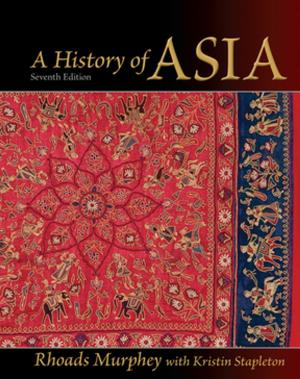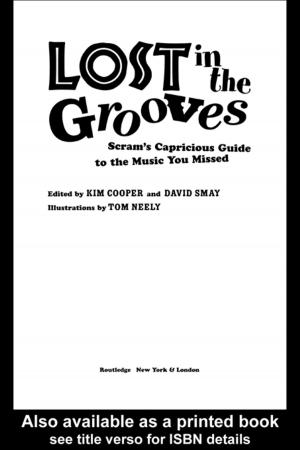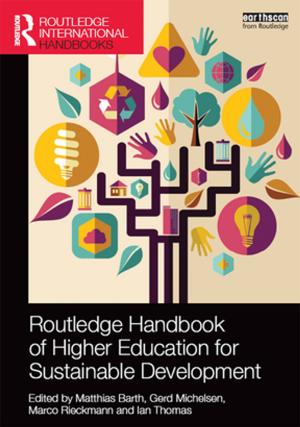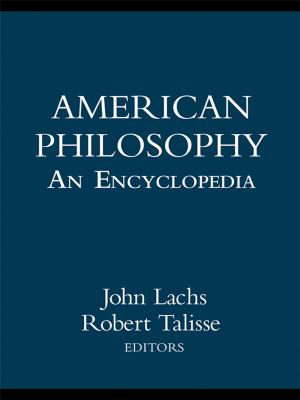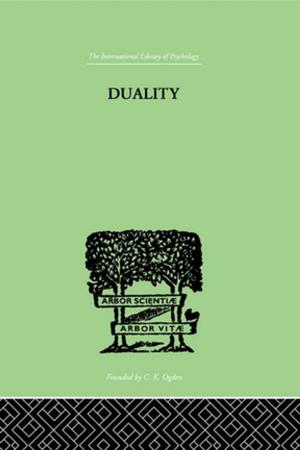Anima and Africa
Jungian Essays on Psyche, Land, and Literature
Fiction & Literature, Literary Theory & Criticism, African, Nonfiction, Health & Well Being, Psychology, Mental Health| Author: | Matthew A. Fike | ISBN: | 9781351850803 |
| Publisher: | Taylor and Francis | Publication: | May 23, 2017 |
| Imprint: | Routledge | Language: | English |
| Author: | Matthew A. Fike |
| ISBN: | 9781351850803 |
| Publisher: | Taylor and Francis |
| Publication: | May 23, 2017 |
| Imprint: | Routledge |
| Language: | English |
C. G. Jung understood the anima in a wide variety of ways but especially as a multifaceted archetype and as a field of energy. In Anima and Africa: Jungian Essays on Psyche, Land, and Literature, Matthew A. Fike uses these principles to analyze male characters in well-known British, American, and African fiction.
Jung wrote frequently about the Kore (maiden, matron, crone) and the "stages of eroticism" (Eve, Mary, Helen, Sophia). The feminine principle’s many aspects resonate throughout the study and are emphasized in the opening chapters on Ernest Hemingway, Henry Rider Haggard, and Olive Schreiner. The anima-as-field can be "tapped" just as the collective unconscious can be reached through nekyia or descent. These processes are discussed in the middle chapters on novels by Laurens van der Post, Doris Lessing, and J. M. Coetzee. The final chapters emphasize the anima’s role in political/colonial dysfunction in novels by Barbara Kingsolver, Chinua Achebe/Nadine Gordimer, and Aphra Behn.
Anima and Africa applies Jung’s African journeys to literary texts, explores his interest in Haggard, and provides fresh insights into van der Post’s late novels. The study discovers Lessing’s use of Jung’s autobiography, deepens the scholarship on Coetzee’s use of Faust, and explores the anima’s relationship to the personal and collective shadow. Itwill be essential reading for academics and scholars of Jungian and post-Jungian studies, literary studies, and postcolonial studies, and will also appeal to analytical psychologists and Jungian psychotherapists in practice and in training.
C. G. Jung understood the anima in a wide variety of ways but especially as a multifaceted archetype and as a field of energy. In Anima and Africa: Jungian Essays on Psyche, Land, and Literature, Matthew A. Fike uses these principles to analyze male characters in well-known British, American, and African fiction.
Jung wrote frequently about the Kore (maiden, matron, crone) and the "stages of eroticism" (Eve, Mary, Helen, Sophia). The feminine principle’s many aspects resonate throughout the study and are emphasized in the opening chapters on Ernest Hemingway, Henry Rider Haggard, and Olive Schreiner. The anima-as-field can be "tapped" just as the collective unconscious can be reached through nekyia or descent. These processes are discussed in the middle chapters on novels by Laurens van der Post, Doris Lessing, and J. M. Coetzee. The final chapters emphasize the anima’s role in political/colonial dysfunction in novels by Barbara Kingsolver, Chinua Achebe/Nadine Gordimer, and Aphra Behn.
Anima and Africa applies Jung’s African journeys to literary texts, explores his interest in Haggard, and provides fresh insights into van der Post’s late novels. The study discovers Lessing’s use of Jung’s autobiography, deepens the scholarship on Coetzee’s use of Faust, and explores the anima’s relationship to the personal and collective shadow. Itwill be essential reading for academics and scholars of Jungian and post-Jungian studies, literary studies, and postcolonial studies, and will also appeal to analytical psychologists and Jungian psychotherapists in practice and in training.

